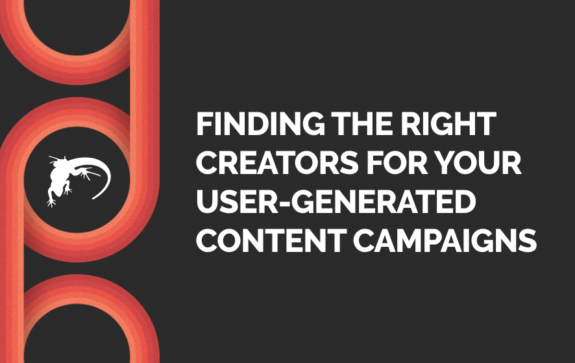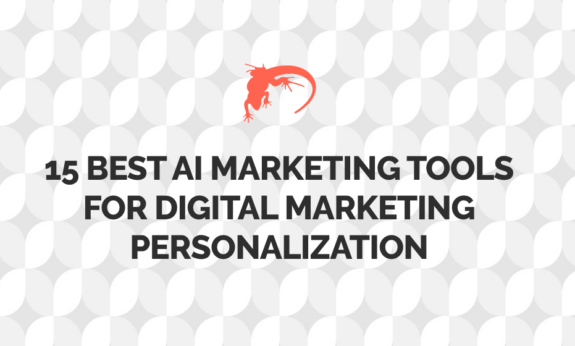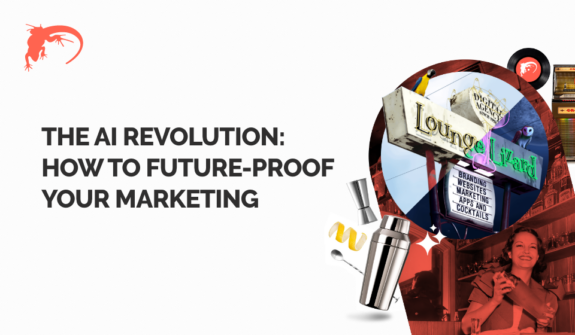How to Crush Your Social Media Ads

In the realm of digital marketing, the pressing questions often revolve around the effectiveness and the intrinsic value of social media ads. Are social media ads effective? What makes an excellent social media ad? Why are social media ads important?
If you find yourself asking these questions, you’re not alone. In this guide, we explore the dynamics of social media advertising, the compelling reasons to employ them, and the strategies to crush your ads, propelling your brand into the stratosphere of immense visibility and engagement.
How Do Social Media Ads Work?
The mechanics of effective social media ads are rooted in a complex yet intuitive blend of art and science. Art is the narrative; it’s your brand’s story—compelling enough to stop potential customers mid-scroll, engaging enough to ignite a conversation, and memorable enough to foster brand loyalty.
Science is the analytics. Social platforms are treasure troves of data, offering granular insights into social media users’ behaviors, preferences, and inclinations. Whether it’s Facebook ads captivating old friends or Twitter users (or X users now) engaging in real-time conversations, each interaction is a data point, a pulse that feeds into the heartbeat of an effective ad campaign.
Every digital marketing ad campaign is a blend of content and analytics. The campaign objectives ensure that the message is captivating and seen, admired, and applauded by the right target audience.
Explaining the Mechanics of How Social Media Ads Work
Social media ads are targeted pieces of content that appear on users’ social media feeds and aim to promote your product, service, or brand awareness. Here’s a basic explanation of how they work:
1. Planning Brand Strategy for a Social Media Ad Campaign
First, start by planning your overall brand strategy and campaign objectives. This means defining the goals of the ad campaign, such as generating leads, increasing website traffic, or boosting sales.
Next, define your target audience and how best to reach them. Whose attention are you trying to capture? Be specific and include everything you can about their demographics, interests, behaviors, and any other characteristics that might be valuable to help you discover the perfect customers. Are your ideal customers active on Facebook and Instagram, or is TikTok a better social media platform?
Finally, define your budget. How much will you spend, and what is your anticipated ROI for the ad campaign? This can be tricky until you understand the bidding process, so talk to the pros before you commit to a plan.
2. Ad Creation
We recommend working with an experienced digital marketing firm, especially when creating engaging content that aligns with their objectives. Ad types can be images, videos, carousels, or text, and a seasoned agency may have better design and development expertise. Additionally, ad copy must create a sense of urgency, a call to action, and a compelling message that prompts the user to respond.
3. Social Media Ad Placement
When it comes to platform selection, choose the social media platforms where your research indicates your target audience spends their time: Facebook, Instagram, Twitter/X, LinkedIn, TikTok, etc.
Then, learn about the different formats and types of ads available on your selected social platforms. Be sure to keep your objectives and user engagement goals in mind.
4. Budgeting and Bidding
First, make sure your budget works now that you have a better idea of how your ad campaign will evolve, including how much you want to spend daily and over the campaign’s life.
Then, select a bidding strategy and determine how you’ll pay for ad placement — pay per click (PPC), pay per impression, etc. Depending on the social media platform, the process may vary but will usually include an automatic or manual bidding or auction system that allows you to set maximum prices. You only pay for the designed action from the user, e.g., click, conversion, etc.
Auctions are automated, and each time a user is eligible to see an ad, an auction is held where advertisers bid for ad placement. The highest bid doesn’t always win. The winner is determined based on bid amount, ad relevance, and estimated action rates (the likelihood of users taking the desired action).
5. Targeting and Delivery
Social media platforms use highly sophisticated algorithms to deliver ads to social media users who fit the targeted criteria, ensuring that the ads reach the most relevant audience. This gives you the flexibility to optimize and track performance mid-campaign to adjust your strategy and improve ad delivery and results.
6. Analytics and Reporting
During the campaign, you will have access to data on user engagement, such as clicks, likes, shares, and conversions. Be sure your social media marketing dollars are finding results, or make adjustments as necessary. This data is extremely useful to gauge your ads’ effectiveness and help you make informed decisions for future social media ad campaigns.
7. Adjustment and Improvement
Social media platforms provide a tremendous real-time feedback loop. Based on the analytics, you can refine strategies, content, and targeting to enhance the performance of future ads. Continuous learning from data and user feedback helps to improve the effectiveness of your social media ads. In essence, social media ads are a dynamic and data-driven way businesses reach, engage, and convert an audience by effectively enhancing their brand visibility and sales.
Why Are Social Media Ads Important?
In the vast expanse of the digital landscape, good social media ads are a terrific way to illuminate your brand amidst the digital clutter. Brand awareness is not just about visibility; it’s about resonance. It’s about crafting a compelling narrative that doesn’t just attract the eyes but also the hearts and minds of your target audience through successful social media ads.
Moreover, the cost-effective nature of social media ads is undeniable. With the ability to tailor ad campaigns with precision, brands can optimize their ROI, ensuring that every penny spent is a penny that propels the brand forward, not just in visibility but in engagement and conversions.
Are Social Media Ads Effective?
The simple answer is a resounding yes. Social media platforms have metamorphosed into digital arenas where brands, both emerging and established, vie for the attention of potential customers.
With billions of social media users spanning platforms like Twitter/X, Facebook, and Instagram, the ability to tailor and target ads to a specific audience has never been more refined. Social media ads work by harnessing the vast array of data available, ensuring that your message is not just heard but resonates with the right target audience.
What Makes an Effective Social Media Ad?
How effective are social media ads? A number of elements contribute to the efficacy of a strong media ad. The ad types range from story ads, popular on Facebook and Instagram, to video ads that captivate audiences with compelling visuals and narratives. A good ad is a symphony of engaging content, aesthetic allure, and a call to action that is as compelling as the narrative woven around it.
The most impactful and successful social media ads are those that understand their target audience. Campaign objectives should be intricately aligned with the insights gleaned from social networking analytics. Every like, share, and comment is a breadcrumb trail leading to a deeper understanding of the audience’s desires, pain points, and aspirations.
Consider Some of the Best Ads in Social Media
The best ads in the social media space are those that have mastered engaging with their audience and telling a great story. They’re ads that do not just speak but listen; they’re not just seen but also remembered. They’re ads that don’t just target an audience but engage a community. The magic happens at the intersection of compelling content, targeted reach, and engaging narratives. Let’s look at a couple of historic examples:
- Dollar Shave Club’s Introduction Video (YouTube and Facebook) — This video ad featured the company’s founder, Michael Dubin, giving a humorous tour of their factory while explaining the simplicity and cost-efficiency of their razor subscription service. The ad went viral, significantly increasing subscribers and setting the stage for Dollar Shave Club’s eventual $1 billion sale to Unilever.
- Airbnb’s “We Accept” Campaign (Facebook and Instagram) — In response to societal divisions and the travel ban controversy in the U.S., Airbnb launched a touching ad showcasing the faces of people from different backgrounds with a message of acceptance and belonging. The ad reinforced Airbnb’s brand identity as a platform for everyone—a message that still resonates today and continues to garner significant praise.
- Nike’s “Dream Crazy” Campaign, Featuring Colin Kaepernick (Twitter/X and Instagram) — The ad featured a close-up of Kaepernick with the text, “Believe in something. Even if it means sacrificing everything.” As a reference to Kaepernick’s decision to kneel during the singing of the national anthem at NFL games as a direct protest against racial inequality and police violence, this campaign ignited a massive amount of positive and negative discussion. However, from a business perspective (and typical of Nike), it was a huge success, leading to a noticeable increase in Nike’s sales and stock price.
To Sum Up
As we navigate the intricate tapestry of social media marketing, the question is no longer whether social media ads are essential but how we can optimize them to resonate, engage, and convert. In a world inundated with content, the winners do not just add to the noise but pierce through it with messages so tailored, compelling, and engaging that they transform audiences from passive spectators to active participants.
Mastering the alchemy of content, analytics, and engagement is about weaving narratives that are not just heard but ignite conversations, foster communities, propel brand awareness, and drive influence and impact.
Contact Lounge Lizard Worldwide, a full-service marketing agency, to discover how our digital marketing team of experts can support your organization with social media marketing, as well as brand strategy and website design and development.





